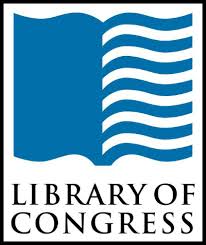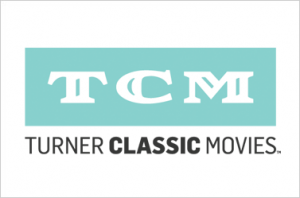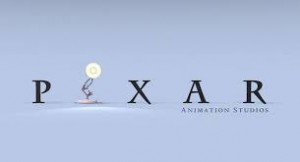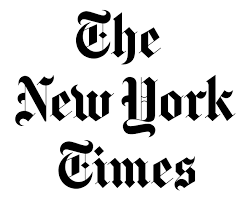Six outlets represent the remaining glories of American mass communication.
In the 1960s and ’70s the nation was filled with a host of powerful and diverse media companies. Honors to the top home-grown media giants were often deserved, including those that went to CBS, RCA/NBC, MGM, Disney, and Warner Brothers, to name a few. But the media landscape has dramatically changed. CBS, for example, sold many of their holdings, including CBS Records and CBS Publishing, then downsized their news staff. The company liquidated many of their crown jewels for cash. Others similarly trimmed social and political documentaries, and shifted the focus of news toward “want to know” rather than “need to know” stories.
The companies that remain are often quite big (i.e., Comcast/Universal/NBC). And many have contributed to what seems like a new golden age of television. But most of the media giants lack the extraordinary public interest commitments that once made their parent companies essential.
The six outlets mentioned here represent some recent or remaining assets in a very different media world. The list is clearly more suggestive than exhaustive, but each organization is probably irreplaceable.
 National Public Radio. Spending time in Britain in the late 70s, I recall thinking how much I would miss BBC Radio 3 and 4 when I finally had to return to the States. BBC 4 especially included a full range of programs that included newscasts, interviews, and quiz shows. The entire network was and is a reminder that radio can still command our full attention. One favorite was Desert Island Disks. With the kind of decorum only the British can muster, celebrity guests talked about the music they would take with them if left stranded on a desert island. It was amazing how many rockers wanted to have Mozart in their backpack.
National Public Radio. Spending time in Britain in the late 70s, I recall thinking how much I would miss BBC Radio 3 and 4 when I finally had to return to the States. BBC 4 especially included a full range of programs that included newscasts, interviews, and quiz shows. The entire network was and is a reminder that radio can still command our full attention. One favorite was Desert Island Disks. With the kind of decorum only the British can muster, celebrity guests talked about the music they would take with them if left stranded on a desert island. It was amazing how many rockers wanted to have Mozart in their backpack.
My sense gloom about returning was short lived because, by that time, a group of far- sighted programmers such as Bill Siemering were stitching together grants and staffs to create the proximate equivalent of BBC 4 in the United States. It would be called National Public Radio. Over time, its mix of news and music programming saved radio from the format-music purgatory to which most stations had been relegated. More importantly, NPR has re-seeded a once barren public radio landscape, which now flourishes with offerings from local stations as well as networks like American Public Radio.
NPR is enormously popular with listeners, especially in the morning. And while some of its news coverage is facile, it has given the nation a much more personal form of informational programming than its public television counterparts. PBS’s Newshour can be hopelessly staid and overstuffed, a function of a recurring pattern of hosting official and journalistic sources who talk mostly to each other. NPR is far better at representing the perspectives of a broader spectrum of Americans. And it does it for a fraction of the cost required to produce an hour of television. For the good of the republic, we would have to reinvent the network if it disappeared.
 The Library of Congress. With this magnificent library its hard to know what to love first: the Thomas Jefferson building at the center of its campus, or the sheer idea of its comprehensive collection. If you’ve missed it, the Jefferson building on Independence Avenue behind the U.S. Capitol is an architectural gem. It’s easy to see why it is often called the most beautiful structure in the country.
The Library of Congress. With this magnificent library its hard to know what to love first: the Thomas Jefferson building at the center of its campus, or the sheer idea of its comprehensive collection. If you’ve missed it, the Jefferson building on Independence Avenue behind the U.S. Capitol is an architectural gem. It’s easy to see why it is often called the most beautiful structure in the country.
And then there’s the library’s many missions. Started from Thomas Jefferson’s book collection, the library became the de-facto repository of the nation’s cultural output. We rightly cherish digital media for their storage capacities and portability. But there’s something special about a series of public spaces that have preserved the products of the nation’s publishers. Beyond books there are also vast troves of films, millions of photographs, manuscripts and early recordings, plus a searchable database that could occupy almost any enthusiast forever. To get a taste of its internet offerings, visit their main website at http://www.loc.gov/.
 Turner Classic Movies. Cable offers many ways to view films. But few channels have carried out their mission with greater class than TCM, which is a part of the Time-Warner empire. Turner runs older films as they would have been seen in theaters: with no commercial breaks, no expensive cable packages for access, and a certain respect for film as the nation’s preeminent cultural form. A constant viewer will see quite a few mediocre releases. But they will also be offered a range of screenings that no film school or library could possibly match. Add in interviews with top directors, DPs, actors and others, and this durable channel is an unmatched and accessible repository of American film. TCM stands out amid the cacophony of commercial television.
Turner Classic Movies. Cable offers many ways to view films. But few channels have carried out their mission with greater class than TCM, which is a part of the Time-Warner empire. Turner runs older films as they would have been seen in theaters: with no commercial breaks, no expensive cable packages for access, and a certain respect for film as the nation’s preeminent cultural form. A constant viewer will see quite a few mediocre releases. But they will also be offered a range of screenings that no film school or library could possibly match. Add in interviews with top directors, DPs, actors and others, and this durable channel is an unmatched and accessible repository of American film. TCM stands out amid the cacophony of commercial television.
 Pixar. Under John Lasseter this animation studio now owned by Disney has wholly reinvigorated the narrative possibilities and visual language of the family film. Not only are Pixar movies consistently social and progressive, but they have been constructed with unusual inventiveness and wit. It would take a cold heart to resist the charms of Toy Story, The Incredibles, Finding Nemo, Monsters Inc., WALL-E, and a host of other features. Most have been cast with unusual care, using terrific voice actors including Tom Hanks, Ellen DeGeneres, John Ratzenberger, and Billy Crystal, among others. In a form that now usually segregates its audiences into tight demographic units, Pixar holds on to the old-fashioned but valuable idea that some filmed entertainment can still charm nearly everyone.
Pixar. Under John Lasseter this animation studio now owned by Disney has wholly reinvigorated the narrative possibilities and visual language of the family film. Not only are Pixar movies consistently social and progressive, but they have been constructed with unusual inventiveness and wit. It would take a cold heart to resist the charms of Toy Story, The Incredibles, Finding Nemo, Monsters Inc., WALL-E, and a host of other features. Most have been cast with unusual care, using terrific voice actors including Tom Hanks, Ellen DeGeneres, John Ratzenberger, and Billy Crystal, among others. In a form that now usually segregates its audiences into tight demographic units, Pixar holds on to the old-fashioned but valuable idea that some filmed entertainment can still charm nearly everyone.
 Google Search. If bigness has its costs, of which privacy is one, it also has its virtues. Any internet search engine is a powerful tool. Google’s is particularly effective at managing the task of finding needles in haystacks. It’s ease of use makes it possible to forget the old and laborious process of searching individual bibliographic sources. The sheer ability of Google’s servers to search the internet’s network of networks is surely the greatest feat of information management humans have ever devised.
Google Search. If bigness has its costs, of which privacy is one, it also has its virtues. Any internet search engine is a powerful tool. Google’s is particularly effective at managing the task of finding needles in haystacks. It’s ease of use makes it possible to forget the old and laborious process of searching individual bibliographic sources. The sheer ability of Google’s servers to search the internet’s network of networks is surely the greatest feat of information management humans have ever devised.
I can vouch that no item is too minor to be overlooked. There’s a gruff book review in a minor journal that follows my name around the web like a badly trained dog on a very short leash. Google never forgets.
 The New York Times. Many urban centers are the homes of effective news organizations that still publish daily papers and online versions. That’s true of Los Angeles, Chicago, San Francisco, Boston, Newark, Atlanta, New Orleans and a number of other cities. But there are only a handful of organizations that have the necessary staff to cover national and international news. One is the Associated Press. The other is the New York Times.
The New York Times. Many urban centers are the homes of effective news organizations that still publish daily papers and online versions. That’s true of Los Angeles, Chicago, San Francisco, Boston, Newark, Atlanta, New Orleans and a number of other cities. But there are only a handful of organizations that have the necessary staff to cover national and international news. One is the Associated Press. The other is the New York Times.
With about 1300 reporters–far more than other American news outlets–The Times has mostly maintained its status as one of the world’s great news gathering institutions. We know this in part because it is the de-facto agenda-setter for a lot of other print and video news media. Still controlled by the Ochs and Sulzberger families, The Times has been able to resist the pressures of markets that require other news organizations to maximize profits by cutting editorial staffs. To be sure, The Times is not immune to declines in the newspaper reading habit. Advertisers are also less loyal to older media forms. And most quarterly reports to the paper’s (non-voting) stockholders show worrying trends, such as decreased revenue from the sale of display advertising.
What does this indispensable resource give us? It is better than most outlets in covering trends, national political news, publishing and the media industries, the arts, and the human consequences of the global economy. It’s investigative journalism is also a national asset, especially examining the work (or inactivity) of federal agencies, and the long-term prospects of key policies, such as the Affordable Care Act.
The Times is not perfect. But it is the best American journalism organization we have. The nation would be noticeably poorer without the illumination it provides.
Comments: Woodward@tcnj.edu
